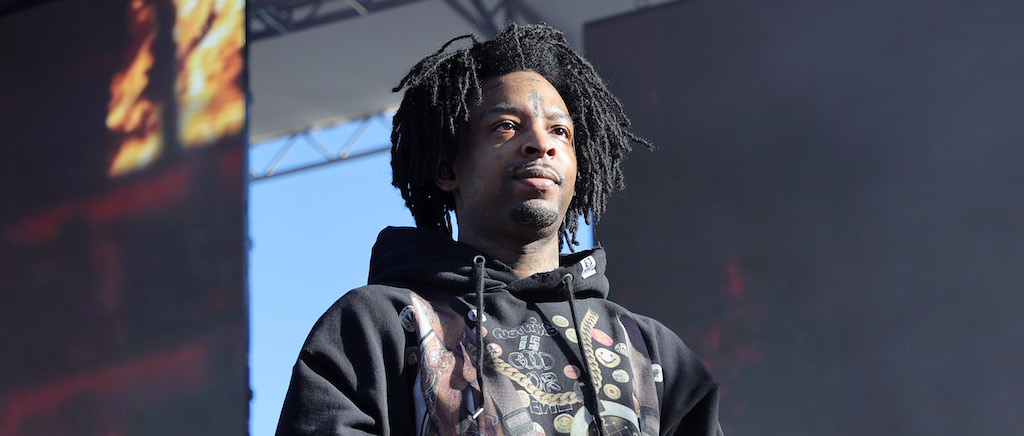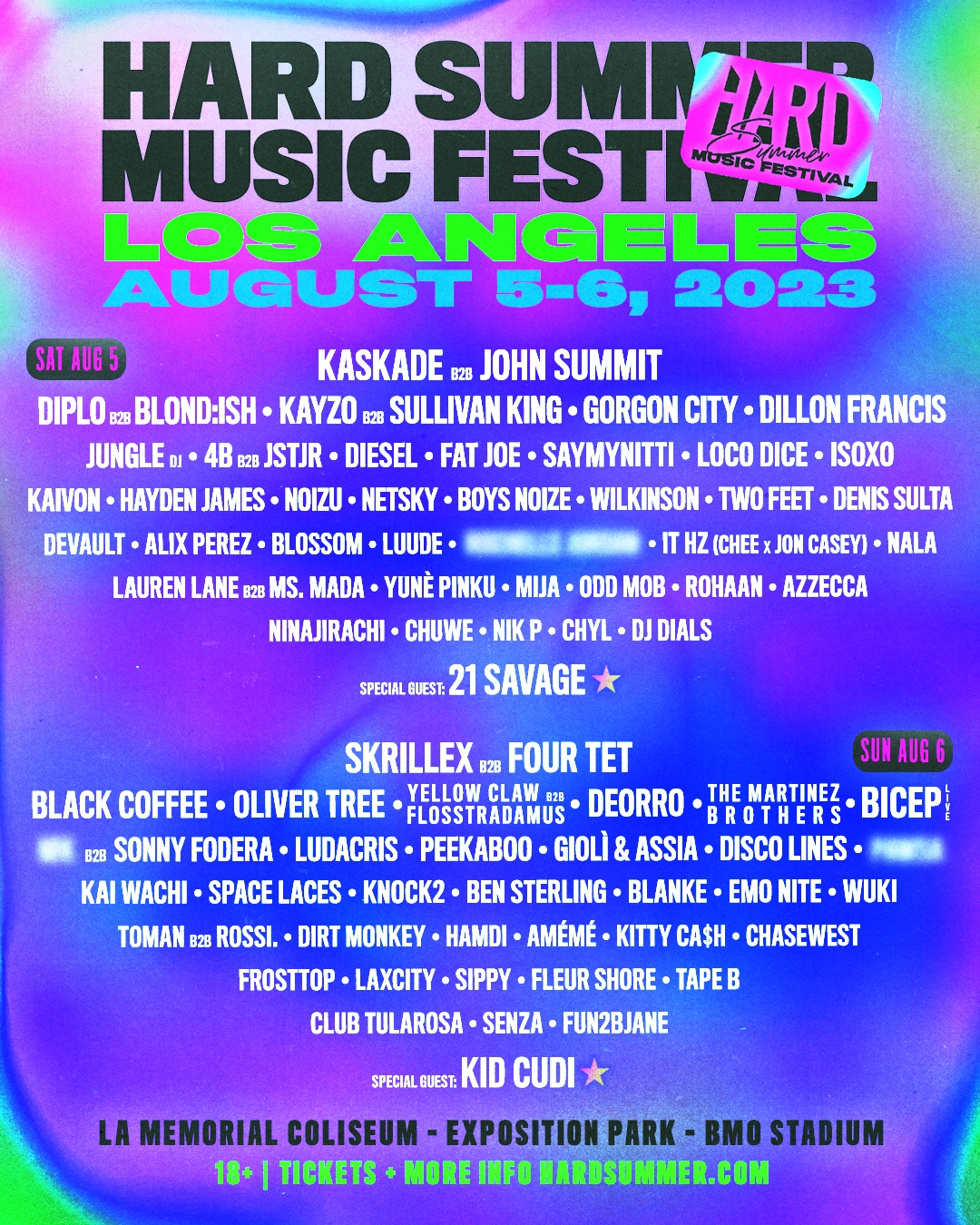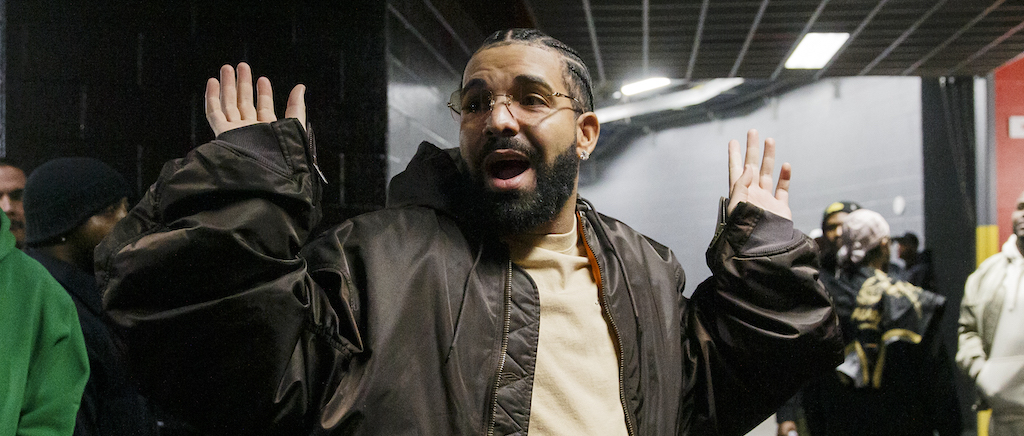
Black Coffee
Black Coffee Says Drake and Lil Baby Are ‘Making an Album’

Drake May Be Adding A Joint Album With Lil Baby To His Growing List Of Atlanta Collaborations
Drake and 21 Savage’s surprise album Her Loss was a rousing success last year and a worthy follow-up to his previous joint project with an Atlanta trap rapper, 2015’s What A Time To Be Alive with Future. And while a sequel to What A Time has apparently been in the works since before the COVID-19 pandemic, it looks like Drake’s next ATL team-up will be with a different rapper with whom he’s shown great chemistry: Lil Baby.
That’s right: Drake and Lil Baby have reportedly been working on a joint album, according to Drake’s Honestly, Nevermind collaborator Black Coffee. The South African DJ recently noted that Quality Control’s Coach K told him about the project during an interview, saying, “He had said to me Lil Baby and Drake are making an album” (Lil Baby is signed to the Atlanta-based label). He also noted that “it’s possible Drake is retiring,” which does echo a sentiment Drake himself shared with another QC artist, Lil Yachty.
Drake & Lil Baby may be making a Collab Album
According to Black Coffee this was said by Coach K (part owner of QC).
— Drake Charts ⁶𓅓 (@DrakeChart) March 8, 2023
If Drake and Lil Baby really are working on a joint project together, it’ll be an appropriate way to tie off a trilogy of projects with Atlanta trap rappers whose careers he helped immensely, and the culmination of his and Baby’s growing chemistry. In 2018, Drake helped supercharge the ATLien’s rise to stardom his feature on “Yes Indeed,” leading to a string of similar collaborations like “Staying Alive” and “Wants And Needs” from Scary Hours 2. In fact, Baby was supposed to appear on “Toosie Slide” as well, but Baby was busy with other commitments at the time.
Hopefully, he’ll be able to stay on tast this time around and help deliver what’ll almost certainly be a fan-favorite project in the vein of both rappers’ beloved joint projects (Lil Baby previously worked with Gunna on Drip Too Hard). Fingers crossed, folks. You can watch Black Coffee’s full Podcast And Chill interview above.
H/T: HotNewHipHop
Drake & Lil Baby Are Working On Joint Project: Report
We could be nearing the end of the Drake era. The rapper recently revealed that he’s allowed the idea of a “graceful exit” to fester in his mind before bowing out of the rap game for good. “I’m at the point now where I just want to, like, and I feel like maybe we talked about this the other day, but I feel like I’m kind of introducing the concept in my mind of a graceful exit,” he told Yachty during Moody Conversations. In the past 14 years since the release of So Far Gone, Drake became a cultural behemoth with a grip on the Billboard charts, unlike any other artist who came before him.
It seems as though we might end up getting at least one more album out of him before he decides to call it quits. In November, he joined forces with 21 Savage for his latest body of work, Her Loss, which closed out a trilogy that began with Certified Lover Boy and followed by Honestly, Nevermind. Though he hasn’t indicated what his next project would be, he did confirm that he will likely release more new music later this year.
Drake x Lil Baby?
Perhaps, the next addition to Drake’s catalog could be a new collaborative effort with Lil Baby. The two rappers developed a strong rapport over the years with the Canadian star previously inviting Baby to his home to record new music last year. However, Baby didn’t appear on Her Loss, so many assume that he was cooking up music for It’s Only Me. Turns out, he may have been working on a new joint project with Drizzy.
Black Coffee, the South African DJ who helped produce Honestly, Nevermind, recently sat down for an interview with MacG where he seemingly spilled the beans about Baby and Drake’s joint effort. Detailing a conversation with Coach K of Quality Control, he said, “He had said to me Lil Baby and Drake are making an album. It’s possible Drake is retiring.” Though Drake nor Baby have confirmed whether there’s any truth to Black Coffee’s claims, we’re hoping that they come through with new heat for the summer. Check out Black Coffee’s comments above.
Full Black Coffee Interview
HARD Summer’s 2023 Lineup Includes Special Guests 21 Savage And Kid Cudi And A Brand-New Venue

One of the biggest festivals of the year is HARD, a long-running festival that began in 2007 to highlight alternative and electronic acts and has been running ever since. This year, though, it’s making some big changes, moving to a new venue in Los Angeles and continuing to expand its horizons, adding hip-hop acts such as 21 Savage and Kid Cudi as special guests after bringing in Megan Thee Stallion and Lil Uzi Vert last year.
HARD Summer 2023 returns to Los Angeles, the festival’s birthplace, for the first time in 10 years on August 5 and 6, leaving behind the San Bernardino NOS Event Center for the Exposition Park area near downtown, which includes both the Coliseum and BMO Stadium (formerly the Banc Of California Stadium).
And although there are some other rap names on this year’s lineup, including Fat Joe and Ludacris, HARD’s keeping things mostly the same, with headliners Kaskade and Skrillex joining a lineup that includes standouts such as Four Tet, Diplo, Black Coffee, Dillon Francis, Oliver Tree, and more. There also appear to be some surprise artists on the bill who will presumably be announced as the festival nears. And don’t discount the possibility that Drake, who collaborated with Black Coffee on last year’s Honestly, Nevermind, might show up too. Never forget who started EDM in the first place.

Tickets go on sale on Friday, March 10 at 10 am. You can get more info on the official website.
Ushuaïa Ibiza & Hï Ibiza Announce 2022 Season Closing Parties

Black Coffee Is Throwing An All-Day Party In London This Weekend

Drake Partied To Some ‘Honestly, Nevermind’ Cuts At A Black Coffee Show In Ibiza

When Drake dropped his latest album, Honestly, Nevermind, more than a few of his longtime fans were thrown by what they (incorrectly) identified as “mall music.” But maybe the thing missing for those fans was the proper context — something fans got in when The Boy himself popped out during his collaborator Black Coffee’s concert in Ibiza, Spain to perform some selections from the controversial album. Black Coffee posted a few videos to his social media of Drake surprising fans mid-set, and let’s just say that those songs definitely work better in this context.
In one, Drake can be seen rubbing shoulders in the crowd, grooving to the infectious four-on-the-floor beats from “A Keeper,” while in the other, Drake joins Black Coffee on stage as “Massive” — one of the near-consensus faves from the new album — inspires some two-stepping (although many of the fans have their phones out to capture the moment the two stars embrace).
If you reading this…..honestly….never mind
pic.twitter.com/Dzh4TBhsPx
— Black Coffee (@RealBlackCoffee) July 17, 2022
Brother came through to show love……honestly,never mind.
pic.twitter.com/0k1rGqoZif
— Black Coffee (@RealBlackCoffee) July 17, 2022
Drake has had something of an eventful week in Europe outside of music as well. On Friday, rumors circulated online that Drake had been arrested by Swedish authorities, with “Free Drake” trending on Twitter. And while that rumor was initially shot down, Drake himself did appear to confirm that he was at least temporarily detained, sharing a photo of a document from the Swedish National Police Board.
Drake’s Unexpected ‘Honestly, Nevermind’ Is An Earnest Reclamation Of A Black Artform

Drake is a master of throwing curveballs. The now-35-year-old rapper has been juking fans’ expectations since he arrived on the scene as an aspiring artist back when he was still just a cast member on a cable teen soap opera. Heck, his very existence as THEE superstar rapper of the past decade defiantly flouts rap conventions. You probably already know the spiel at this point and have probably long since chosen your position on whether this is a boon or blasphemy.
With his new surprise album Honestly, Nevermind, Drake may have thrown the biggest curve of his career yet. Fans have never expected hardbody rhymes from The Boy, but they could at least rely on receiving a collection of sad boy anthems and passive-aggressive caption raps with each new Drake project. Instead, many were utterly flabbergasted to press play on a compilation of dance tracks inspired by late fashion designer and DJ, Virgil Abloh, showcasing a global palette of mainly South African-originated house styles like gqom (the “gq” is pronounced as a click in isiZulu, one of the nation’s 14 official languages) and amapiano.
As for me, I was delighted. For the past three years, I have been predicting a wave of Black artists making a pilgrimage to dance music, including such pioneers as Channel Tres, Duckwrth, and even Vince Staples (Big Fish Theory was right there). That Drake – who has always cottoned on to international subcultures as both an extension of his eclectic tastes and savvy stylistic evolution – is the one to lead the charge is deliciously fitting. Just look at the mainstream relevance of UK drill music and its New York-based offshoots in the wake of Drake’s 2019 collaboration with Headie One. Before that, it was Nigerian Afropop, UK grime, and way, way back, you may recall, the house-inflected title track from his sophomore album, Take Care.
Not only does Drake’s embrace of house music on his latest represent a full-circle moment for him but it is also one for the genre itself. Over the course of the last several years, there has been a cornucopia of articles on the internet recounting the origins of house and techno music in Black subcultures in cities like Chicago, Detroit, and New York in the 1970s and ‘80s. They’ve highlighted how Black artists and DJs were pushed out of the genres that they created, supplanted with watered-down, whitewashed imitations thanks to an influx of international interest – particularly from Europe, where dance music continues to flourish in a mainstream context compared to the US where it’s still considered niche or passé (classifications of Honestly, Nevermind as mall music abound on Twitter as I write this).
But also over the past few years, due partially to the keen interest in reclaiming Black American history that spawned from the uprisings of the past decade, Black artists have shown a greater inclination to break out of the limiting categorizations of so-called “urban” genres. Even more than that, Black artists have taken aim at reclaiming OUR genres – country, rock, pop, punk – and declaring that we do, in fact, belong in the spaces that we had hands – in some cases, the greatest hands – in creating. As Channel Tres told me back in 2019:
“I think a lot of people right now are artists that fit into a category of what you think how they should be. But if you push the conventions, it frees up other kids that are coming after us seeing certain images. It’s hard a lot of times for Black kids to find an image, because we get told what we should be. I just know if I let somebody put me in a box, someone else might not get the freedom to be who they’re supposed to be.”
Likewise, Duckwrth echoed the sentiment of Black belonging in the dance subculture just a year later:
“I think that the reason why house is so big in the white demographic is because it’s very much straightforward. It’s two, three, four, one, two, three, four, and with Black folks, put a little swing in that thing. I feel the original creators of it like Mr. Fingers had a bit more of a soulful flair to it, and then as time went on different people started grabbing it, and then it may have become more simple… I think you can hear the Blackness in the original house.”
This is why Virgil Abloh was so important to the movement to bring the culture and the genre back to their respective centers. He’d DJ at festivals and play house music by Black artists such as Black Coffee, who executive-produced Honestly, Nevermind, opening the door for modern audiences to see and understand our role within the dance genre. And this is why it is so important that it’s Drake, the biggest artist within the one Black genre that has successfully defended itself from a complete takeover of cultural appropriation, who is taking this stride back into the space that Black artists created and were forced to vacate. He’s taking a screwdriver to the door’s hinges, and removing it entirely, ensuring unfettered access to our history.
It’s freeing. It’s giving Black people permission again to take up space – both culturally and literally. It’s telling people to move their bodies. For decades after hip-hop’s creation, movement itself was stifled – especially for men. Just look at Terror Squad’s “Lean Back”; we were all so pre-occupied with being “hard,” with being “gangsta,” we couldn’t move our bodies – the most natural response to music in the world – because we were afraid to look “soft” to be vulnerable, to be corny, to be square. Drake has already absorbed all the disapproval connected to those labels for his entire career. He has already been the butt of the joke. He has nothing left to lose. And because of that, he can be the example that shows that it’s okay not to settle for the small, stifled caricature society has assigned to us as Black men. We can be more.
The best part is, he’ll be far from the only one this summer. Because he’s Drake, the trendsetter, the movement starter, there will be others. And if no one else is willing to take up the cause, Beyonce has already hinted that her upcoming album, Renaissance, will also be heavy on dance and country, another style that Black folks helped to originate before being given the boot. She’s reclaiming that, too, in her own way. Black art won’t be reduced to just one of two musical styles it’s “okay” for us to like. And at first, that may confuse some in the audience, those who have learned to accept society’s limitations and expectations. That’s okay. They have “Jimmy Cooks,” the most traditional rap song on Honestly, Nevermind. Until they’re ready. Until they too, free themselves, loosen up, and learn to reclaim what was always theirs from the start.
Here Are the Full Production Credits for Drake’s ‘Honestly, Nevermind’




